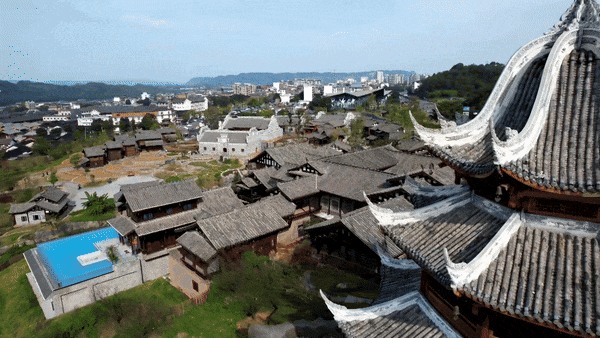
During the Chinese People’s War of Resistance Against Japanese Aggression, the small, remote town of Lizhuang in Yibin, Sichuan offered shelter to over ten thousand intellectuals. As war spread across China, these scholars arrived by the Yangtze River, carrying boxes of books. They hoped to protect China’s cultural and scientific knowledge. Some came from famous institutions like Tongji University, including well-known figures such as Lin Huiyin, Liang Sicheng, and Liang Siyong.
More than eighty years ago, Liang Siyong lived in Lizhuang with his young daughter. A local man named Luo Nangai offered them his own house when he saw that Liang was in poor health. He even brought them food after moving away. Luo also let Tongji University use his family’s ancestral hall for classes and housing. When asked why they helped, his grandchild Luo Yaxin said simply: “For our country, everyone gives what they can — some with their money, some with their strength.”
In the local museum, a drawing of borscht (罗宋汤) by Liang Sicheng shows the hope scholars held during hard times. Here, Liang and others did important research on Chinese architecture. They also became close with young pilots who were defending China. Many pilots died in battle, and their belongings were sent to the Liang family. Though sick, Lin Huiyin wrote: “That’s what the moment asked of you — and you gave it all.”
Those six difficult years were also a time of achievement. Tongji University added new programs, and researchers began archaeological studies in Southwest China. Experts continued their work on ancient Chinese writing. Villagers helped turn a temple into a medical classroom. Students brought electricity to the town for the first time. Through all the challenges, Chinese culture continued to grow.
原创编写 版权所有 侵权必究! 每日更新 个性化阅读 英语飙升!




 更多优质学习内容
更多优质学习内容



